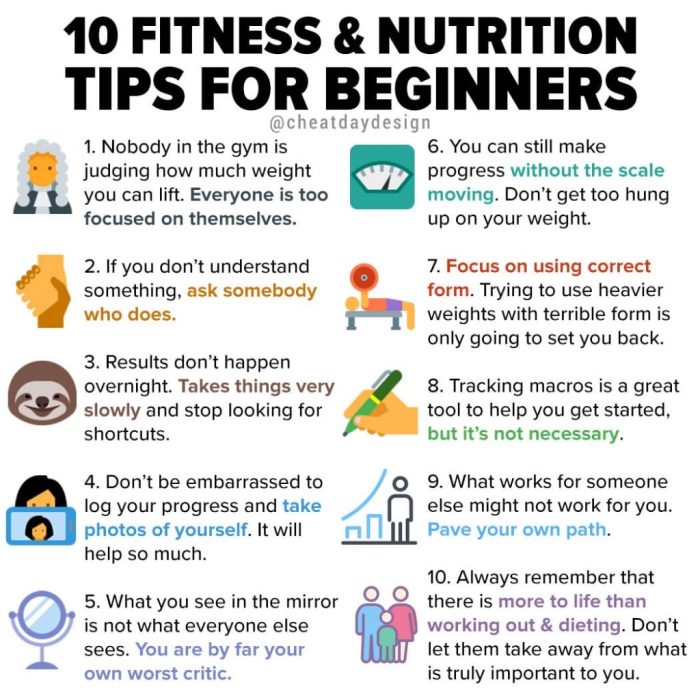How to Overcome Eating Disorders: A Comprehensive Guide to Recovery. Eating disorders are serious mental illnesses that can have devastating consequences for both physical and mental health. If you or someone you know is struggling with an eating disorder, it is important to seek professional help as soon as possible. This guide will provide you with the information you need to understand eating disorders, their causes, and how to overcome them.
In this guide, we will explore the causes and triggers of eating disorders, discuss the principles and techniques of cognitive behavioral therapy (CBT) for eating disorders, elaborate on the importance of a balanced diet and regular exercise in overcoming eating disorders, identify the role of family, friends, and support groups in providing emotional and practical support, and share practical tips for improving mental well-being, such as mindfulness, stress management, and positive self-talk.
Exploring Causes and Triggers
Eating disorders are complex mental health conditions that can have devastating effects on individuals and their families. While there is no single cause of eating disorders, a combination of psychological, biological, and environmental factors are thought to contribute to their development.
Understanding how to overcome eating disorders can be a challenging but essential journey. Exercise is an invaluable tool in this process. As research suggests in ” Benefits of Exercise for Mental Health “, physical activity releases endorphins that have mood-boosting effects.
This can help improve body image and reduce negative thoughts, both of which are crucial for overcoming eating disorders.
Psychological Factors
- Low self-esteem and body dissatisfaction
- Perfectionism and a need for control
- History of trauma or abuse
- Mental health conditions such as anxiety or depression
Biological Factors
- Genetics: Eating disorders tend to run in families, suggesting a genetic component.
- Neurotransmitters: Imbalances in certain neurotransmitters, such as serotonin and dopamine, may play a role in eating disorders.
- Hormones: Changes in hormone levels, such as those that occur during puberty or pregnancy, can also contribute to eating disorders.
Environmental Factors
- Cultural pressures to be thin
- Media images that promote unrealistic body ideals
- Dieting and weight loss attempts
- Peer pressure
Triggers
Certain situations or events can trigger disordered eating behaviors in individuals who are vulnerable to developing an eating disorder. These triggers can include:
- Stressful life events, such as a job loss or relationship problems
- Negative comments about weight or appearance
- Exposure to images of thin people
- Social media posts about dieting or weight loss
It is important to note that not everyone who experiences these triggers will develop an eating disorder. However, for those who are vulnerable, triggers can be a significant factor in the development and maintenance of disordered eating behaviors.
Cognitive and Behavioral Therapies
Cognitive behavioral therapy (CBT) is a type of psychotherapy that helps individuals identify and change negative thoughts and behaviors. CBT for eating disorders focuses on helping individuals develop a healthier relationship with food and their bodies.
CBT techniques include:
– Identifying and challenging negative thoughts about food, weight, and body shape
– Learning to cope with difficult emotions and situations without resorting to disordered eating behaviors
– Developing healthy eating habits and exercise patterns
– Improving body image and self-esteem
For example, CBT can help individuals with anorexia nervosa to challenge the negative thoughts that tell them they are fat or worthless. It can also help them learn to cope with the anxiety and fear that often accompany eating disorders.
Nutrition and Physical Health

In overcoming eating disorders, maintaining a balanced diet and engaging in regular exercise play crucial roles. A nutritious diet provides the body with essential vitamins, minerals, and energy to support recovery. On the other hand, disordered eating can lead to nutritional deficiencies and various physical health complications.
Nutritional Deficiencies, How to Overcome Eating Disorders
- Vitamin and mineral deficiencies: Restrictive eating or purging behaviors can deprive the body of essential vitamins and minerals, such as calcium, iron, and potassium, leading to anemia, osteoporosis, and other health issues.
- Electrolyte imbalances: Excessive purging through vomiting or laxative abuse can disrupt electrolyte balance, causing dehydration, muscle weakness, and irregular heart rhythms.
- Gastrointestinal problems: Eating disorders can cause digestive issues such as constipation, diarrhea, and gastroesophageal reflux disease (GERD).
Physical Health Complications
- Heart problems: Nutritional deficiencies and electrolyte imbalances can strain the heart, increasing the risk of arrhythmias and heart failure.
- Bone loss: Restrictive eating and excessive exercise can lead to osteoporosis, a condition where bones become weak and brittle, increasing the risk of fractures.
- Muscle loss: Disordered eating and inadequate protein intake can result in muscle loss, affecting strength, mobility, and overall physical function.
- Dental problems: Frequent vomiting can damage tooth enamel, leading to cavities, gum disease, and other dental issues.
Support Systems and Resources
Overcoming an eating disorder is a challenging journey that requires comprehensive support. Family, friends, and support groups play a crucial role in providing emotional and practical assistance.
Family and Friends: Loved ones can offer unconditional love, understanding, and encouragement. They can provide practical support such as meal preparation, transportation to appointments, and companionship during recovery.
To truly overcome eating disorders, a positive mindset is paramount. By implementing Tips to Build a Positive Mindset , you can challenge negative thoughts, cultivate self-acceptance, and establish a healthy relationship with food. With a positive outlook, you’ll be better equipped to make lasting changes that support your recovery journey and foster a healthy and fulfilling life.
Support Groups
Support groups connect individuals with others who have similar experiences. They offer a safe and confidential space to share challenges, gain insights, and receive encouragement from peers who understand the complexities of eating disorders.
Professional Help: Seeking professional help from therapists, dietitians, and physicians is essential for effective recovery. Therapists provide cognitive and behavioral therapy to address underlying psychological issues. Dietitians help develop personalized nutrition plans that support physical health and recovery. Physicians monitor medical complications and provide medical support.
Mental Health Tips
Improving mental well-being is crucial in the recovery journey from eating disorders. Here are some practical tips and strategies to enhance your mental health:
Mindfulness involves paying attention to the present moment without judgment. Engage in mindfulness exercises like meditation or yoga to calm your mind, reduce stress, and improve self-awareness.
Stress Management
- Identify stress triggers and develop coping mechanisms.
- Practice relaxation techniques such as deep breathing, visualization, or spending time in nature.
- Exercise regularly to release endorphins and reduce stress levels.
Positive Self-Talk
Challenge negative thoughts and replace them with positive affirmations. Focus on your strengths, accomplishments, and positive qualities.
Coping with Anxiety and Depression
- Seek professional help from a therapist or counselor.
- Join support groups or online forums to connect with others who understand your challenges.
- Engage in activities that bring you joy and relaxation, such as hobbies, spending time with loved ones, or listening to music.
End of Discussion: How To Overcome Eating Disorders

Eating disorders are complex mental illnesses, but they can be overcome. With the right treatment and support, individuals with eating disorders can recover and live full and healthy lives. If you or someone you know is struggling with an eating disorder, please reach out for help. There is hope.
Quick FAQs
What are the symptoms of an eating disorder?
The symptoms of an eating disorder can vary depending on the type of disorder. However, some common symptoms include: restricting food intake, binge eating, purging (vomiting, using laxatives, or exercising excessively), body image disturbance, and preoccupation with weight or food.
What are the causes of eating disorders?
The causes of eating disorders are complex and can include a combination of genetic, biological, psychological, and environmental factors. Some of the risk factors for eating disorders include: having a family history of eating disorders, being female, having a history of trauma or abuse, and having a negative body image.
How are eating disorders treated?
The treatment for eating disorders typically involves a combination of therapy, medication, and nutritional counseling. Therapy can help individuals with eating disorders to understand the underlying causes of their disorder and develop healthy coping mechanisms. Medication can help to manage symptoms such as anxiety and depression. Nutritional counseling can help individuals with eating disorders to develop a healthy relationship with food.


